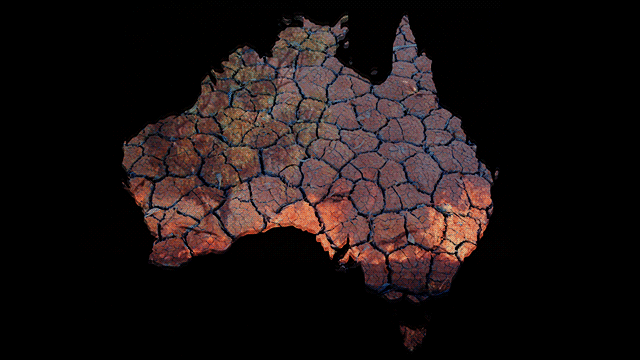‘I am horrified’: Scientist who linked climate change with bushfires in 1987 says it’s not too late


2020 weather: The year that started in fire and ended in floods.
A scientist who predicted our current bushfire crisis four decades ago is ‘horrified’ we did not listen to his warnings on climate change.
In 1987 then-CSIRO scientist Dr Tom Beer pioneered the world’s first research into the link between climate change and worsening fire seasons.
It might seem obvious now, but Dr Beer’s research, published as ‘Australian bushfire danger under changing climatic regimes’, predicted that growing greenhouse gas emissions would have horrific consequences for Australia’s bushfire season.
For Dr Beer, this summer has been the worst told-you-so moment.

Dr Tom Beer. Photo: RSV
“For decades, climate scientists have been warning Australian governments about the escalating threat of catastrophic bushfire conditions because of climate change,” Dr Beer said.
“I am horrified that what my study found has now occurred and the fact this means it is only going to get worse,” he said.
This year’s bushfire season started early and has killed 29 people, destroyed more than 2200 homes, burnt 10 million hectares and covered large areas of the globe in toxic smoke.
When Dr Beer started his research the Ash Wednesday fires of 1983 were the worst the country had seen.
“Since then, we have experienced the Black Saturday fires, had to create a new catastrophic fire danger rating, and in the past few months, we’ve seen 10 million hectares of Australia burn,” he said.
His research was presented at the 1987 CSIRO conference and published in a book. Dr Beer spoke to the media and travelled internationally to talk to specialists in the US about his findings.
For the most part, it was ignored by the Australian government.
Not too late
On Wednesday the 72-year-old was joined by Professor of Pyrogeography and Fire Science at the University of Tasmania, David Bowman and the Climate Council’s Professor Will Steffen, in calling for urgent action.
“Climate change is fuelling the national bushfire catastrophe, and it will get worse without radical action,” they said.
Calling for state and federal governments to work together, they said Australia needs an urgent plan to prepare for worsening fire seasons and to rapidly phase out the burning of coal, oil and gas.
“The length of the bushfire season has increased substantially, making it harder to prepare for dangerous conditions,” he said.
“The costs of fighting fires have also increased substantially, as have the costs of their impacts.
“Clearly, bushfire conditions are now more dangerous, and the risk will continue to escalate. The risk to people and property has increased significantly and will continue to do so.”
Their calls for urgent action have been backed up by the business, medical and scientific communities here and abroad.
Last month, a team of UK climate scientists conducted a rapid review of research conducted since 2013 and found that human-induced climate change will cause an extra 20 to 30 severe fire danger days each year in the future.

We need to phase out coal to mitigate the climate threat. Photo: Getty
The reason action on climate change has stalled is vested interests borrowing straight from the big tobacco playbook, spokesman for the Australian Lawyers Alliance, Greg Barns, said.
“In some ways, this is like the tobacco debate when we knew tobacco was harmful, that cigarettes caused cancer but governments ignored the advice,” Mr Barns said.
“There are some analogies between the way in which the big pharma and big tobacco litigation emerged, where there was clear and unequivocal advice given to governments which said that radical action had to be taken.
“Particularly in relation to planning and environmental decisions, in relations to the increase in bushfires, the strength of those fires and the length, as a result of climate change.
“Governments in effect ignored those reports, or worse than that, buried them. So there are some parallels.”
The similarities in the situation could potentially lead to class actions against the government, Mr Barns said.
“For a government to deliberately ignore un-contradicted scientific evidence, that showed an increased risk of bushfires, weather catastrophes, is gross negligence and shows a complete lack of moral compass.
“Speaking from a legal point of view, if it can be shown that the government has deliberately failed to implement policies when they had demonstrable evidence, that is a very serious matter.”








